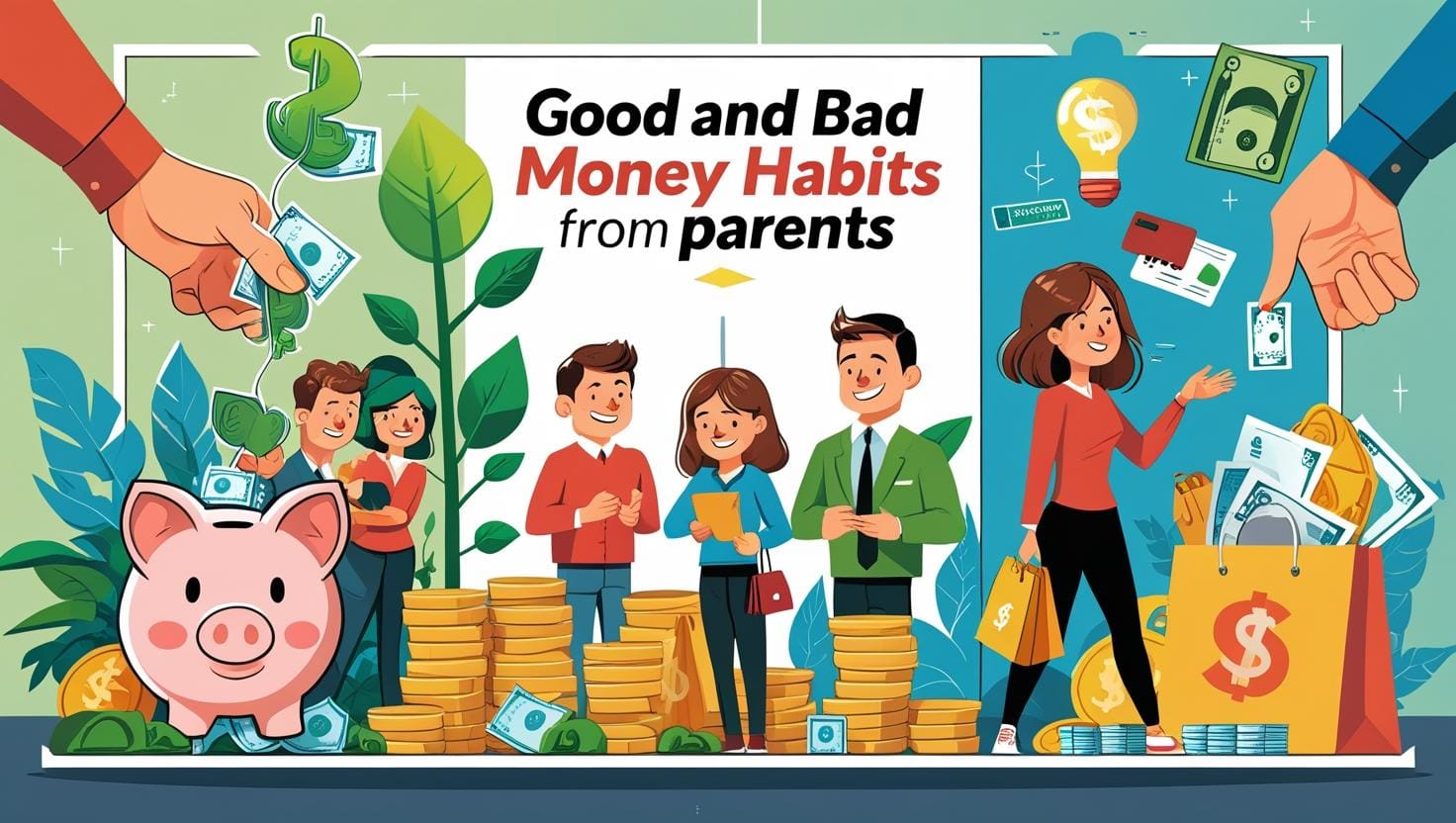Money Habits I Inherited from My Parents — Good and Bad
Your money habits aren’t random — they’re inherited. Here are the ones I got from my parents, the ones I’m proud of, and the ones I had to unlearn.

We talk a lot about money in adulthood — budgeting, investing, savings.
But the truth is, most of our financial behavior is shaped by what we saw growing up.
From how we treat spending… to how we feel about risk…
A lot of our habits come straight from our parents — the good, the bad, and the confusing.
In this post, I want to share a few money habits I inherited from my parents — some I still follow, and some I had to unlearn.
✅ Good Habits I’m Grateful For
💡 1. Live Below Your Means
I saw my parents say “no” to many things — not because they couldn’t afford them, but because they chose to save.
They didn’t chase brands or EMI offers.
They prioritized stability over style, and that mindset stayed with me.
💬 Lesson: You don’t need to look rich to grow rich.
💡 2. Save Before You Spend
In my home, salary came → bills were paid → savings were done → then came spending.
It taught me to treat saving as a non-negotiable, not something I do “if money’s left”.
💬 Lesson: Automate your savings — it’s the modern version of this habit.
💡 3. Avoid Debt Unless It’s Necessary
My parents believed that debt = stress, and only borrowed for things like a home or higher education.
So even today, I’m very cautious with credit cards and loans.
💬 Lesson: A healthy fear of debt can protect you from lifestyle traps.
❌ Money Habits I Had to Unlearn
⚠️ 1. Thinking “Investing Is Risky”
My parents mostly kept their money in:
- Fixed deposits
- LIC policies
- Recurring deposits
Which are safe, yes — but also low-growth.
So for a long time, I avoided equity, SIPs, and mutual funds out of fear.
💬 What I learned: Not investing early was actually riskier. Inflation eats your savings if they don't grow.
⚠️ 2. Not Talking Openly About Money
Growing up, money was a taboo topic.
I never knew how much my parents earned, or how much things cost.
This made me feel guilty or anxious about spending — even when it was okay.
💬 What I changed: I now talk about money more openly — with my spouse, friends, and even online.
⚠️ 3. Prioritizing Security Over Growth
Stability was everything in my parents’ generation.
Which meant avoiding risk, avoiding change, avoiding “too many goals.”
But today’s world rewards calculated growth — in career, finances, and mindset.
💬 What I learned: Balance is better than fear. It’s okay to plan for growth and protect your base.
💬 Final Thoughts
Our parents gave us more than just values — they gave us a financial framework.
Some of it’s gold. Some of it needs updating. But all of it shaped who we are.
So ask yourself:
- What money beliefs did you inherit?
- Which ones are helping you?
- Which ones are holding you back?
Because the real financial freedom is not just earning more — it’s unlearning what no longer serves you.
📢 Coming Soon:
Free “Money Belief Audit” worksheet – to reflect on your money habits and what you want to keep or change.
👉 Subscribe to Bitveen to get it in your inbox!
This post is for educational purposes only and should not be considered financial advice.


